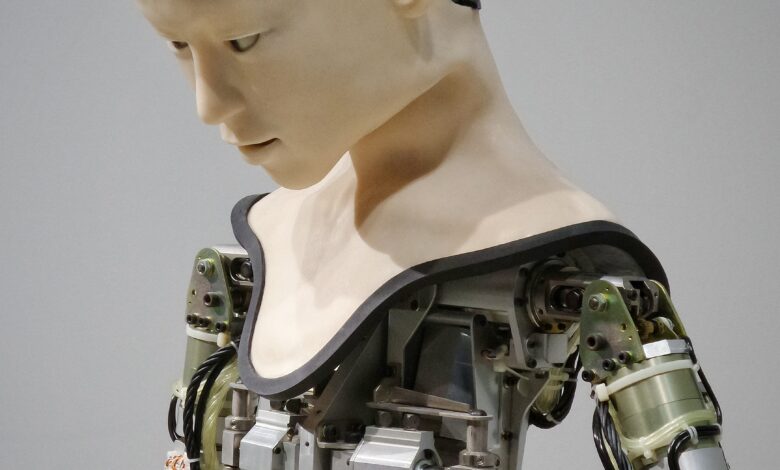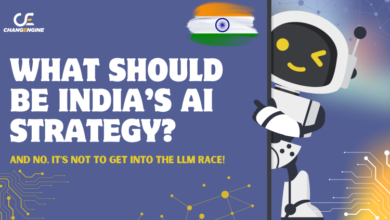7 Ethical Implications Of AI You Must Know
Ethical Issues Of AI

Artificial Intelligence (AI) has revolutionized many aspects of our lives, such as healthcare, transportation, and entertainment. It’s important to understand and address the ethical implications that come along with this technology as it advances at an unprecedented pace.
In this article, we will delve into seven ethical implications of AI. We will shed light on the potential challenges and opportunities that arise from its implementation.
Addressing 7 Ethical Implications Of AI:
Did you know that Semrush reports that marketing and sales prioritize AI and machine learning more than any other department? Interesting!
This technological advancement has also raised concerns about the ethical implications of AI. So, here are the 7 ethical implications of AI:
- Bias in AI Systems
- Privacy and Data Protection
- Job Displacement and Unemployment
- Autonomous Weapons and Warfare
- AI and Human Decision-Making
- AI and Social Impact
- AI and Psychological Impact
- Accountability and Liability
Bias in AI Systems:
One of the significant ethical challenges of AI is the presence of bias in AI systems. AI algorithms learn from historical data, which can inadvertently perpetuate existing biases, resulting in discriminatory outcomes.
For example, biased AI systems can lead to unfair decisions in areas like hiring, lending, and criminal justice. It is crucial to address this bias and ensure that AI algorithms are fair and unbiased.
Privacy and Data Protection:
As AI heavily relies on data, privacy, and data protection are critical ethical considerations. AI systems often collect and process vast amounts of personal information, raising concerns about data security and privacy breaches. Safeguarding individuals’ personal data and establishing transparent data practices are vital to mitigating the ethical risks associated with AI.
Job Displacement and Unemployment:
The automation capabilities of AI have the potential to disrupt traditional job markets. While AI can improve productivity and efficiency, it also raises concerns about job displacement and unemployment.
As machines increasingly take over routine and repetitive tasks, we need to reevaluate education and training programs to ensure individuals are equipped with skills that complement AI technologies.
Autonomous Weapons and Warfare:
AI’s role in warfare and the development of autonomous weapons are significant ethical concerns. The use of AI-powered weapons raises questions about accountability, transparency, and the potential for unintended consequences. Strict regulations and international agreements are necessary to govern the deployment and use of AI in military applications.
AI and Human Decision-Making:
AI’s ability to make decisions and predictions has implications for human autonomy and responsibility. Questions about who should be held responsible for the results arise when AI systems have an impact on important decisions, such as medical diagnoses or financial investments. It is important to strike a balance between AI assistance and human decision-making to ensure ethical decision-making processes.
AI and Social Impact:
The widespread adoption of AI has the potential to reshape society in various ways. It can exacerbate existing social inequalities, disrupt labor markets, amplify echo chambers, and filter bubbles on online platforms. Recognizing and addressing these social impacts is vital to ensuring AI benefits society as a whole and does not exacerbate existing disparities.
AI and Psychological Impact:
AI technologies have the potential to influence human behavior and have a significant impact on our psychological and social well-being. For instance, social media algorithms can shape the information we consume and contribute to echo chambers, reinforcing our existing beliefs and biases.
It is vital to understand and study the psychological and social effects of AI to mitigate any potential harm and maximize its benefits for society.

Accountability and Liability:
Determining liability in AI-related incidents can be challenging due to the complex nature of these systems. When AI algorithms make errors or cause harm, it becomes essential to assign responsibility and establish accountability frameworks. AI systems must be held accountable for their actions and decisions by establishing clear guidelines and legal frameworks.
Read More: This is How AI Will Change the World of Business
FAQs:
How can bias in AI systems be addressed?
Addressing bias in AI systems requires several measures. First, ensuring diverse and inclusive datasets during the training phase of AI algorithms is essential. We can reduce the risk of biased outcomes by incorporating data from multiple sources and perspectives.
Additionally, regular audits and evaluations of AI systems can help identify and mitigate any existing biases. Finally, involving multidisciplinary teams and experts in AI development can help identify and address potential biases from different angles.
What steps can be taken to protect privacy in AI?
Protecting privacy in AI requires a comprehensive approach.
- Organizations should implement robust data protection measures, including secure storage, encryption, and limited access to personal data.
- Clear consent mechanisms should be in place, ensuring individuals have control over their data and how it is used.
- Anonymization and de-identification techniques can help balance the need for data analysis with privacy concerns.
- Regulatory frameworks and legal safeguards play a crucial role in ensuring privacy in AI, outlining guidelines for data collection, usage, and sharing.
How can the impact of job displacement by AI be minimized?
Minimizing the impact of job displacement by AI requires proactive measures. It is crucial to invest in reskilling and upskilling programs to equip individuals with skills that complement AI technologies.
This includes promoting lifelong learning and providing support for workers to transition into new roles or industries. Collaborative efforts between the government, educational institutions, and the private sector can help identify emerging job opportunities and facilitate smooth transitions.
Additionally, fostering entrepreneurship and innovation can create new avenues for employment and economic growth.
What are the potential dangers of autonomous weapons?
Autonomous weapons pose significant dangers due to their potential to operate without direct human control. The lack of human decision-making in targeting and engaging enemies raises concerns about accountability and the potential for unintended harm.
How can AI be harnessed to benefit society as a whole?
It is crucial to put ethics first in order to maximize AI’s positive effects on society as a whole. Organizations should implement ethical AI practices, such as accountability, transparency, and fairness. Collaboration between stakeholders, including researchers, policymakers, and industry leaders, can help shape ethical frameworks and guidelines.
Conclusion:
In conclusion, AI brings numerous advancements and opportunities, but it also comes with ethical implications that require our attention. From bias in AI systems to job displacement, privacy concerns, and autonomous weapons, understanding and mitigating these ethical challenges is essential. We can harness the potential of AI by fostering responsible AI development and embracing ethical frameworks.






